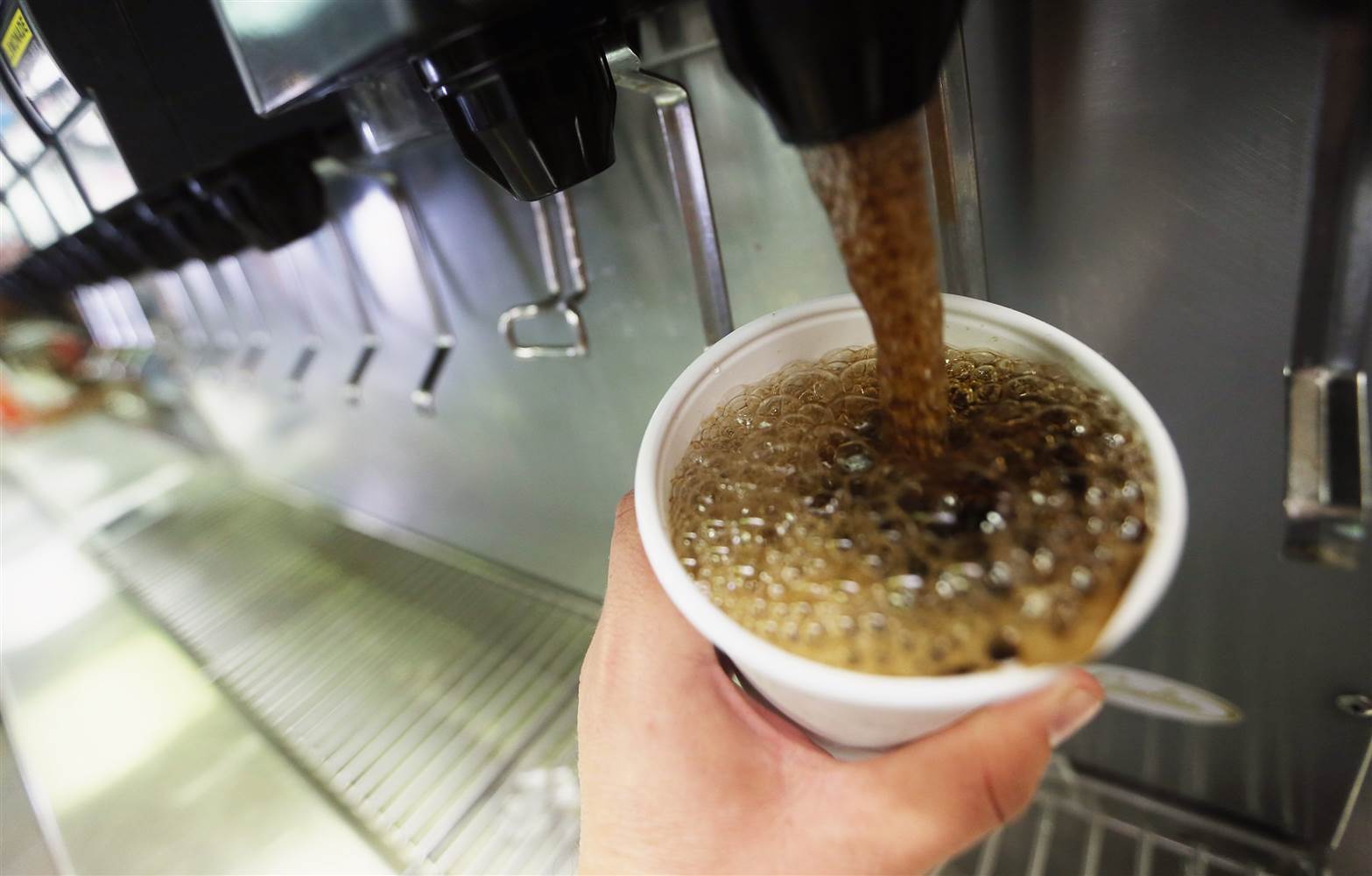Adults who have at least one diet drink a day are three times more at risk of a stroke or dementia.
This, according to researchers at Boston University, who believe the artificial sweeteners found in diet drinks including aspartame and saccharine maybe affecting the blood vessels, eventually triggering strokes and dementia.
Results of the study, conducted on 4,400 adults, found that diet drinks are more likely to cause strokes and dementia than those full of sugar.
While there was no link between sugary beverages and either of the illnesses, researchers aren’t encouraging us to drink them either.
Scientists say they should no longer be regarded as the healthier alternative and urge the public to stick to water or milk.
Diet drinks account for a quarter of the sweetened beverages market but there is growing evidence they are not as healthy as previously thought.

According to the results of a recent major review by Imperial College London, researchers found they were no better at assisting with weight loss than their sugar-filled counterparts. And in fact, authors suggested they were encouraging obesity by triggering the sugar receptors in the brain, making us crave sweet food.
In this latest study headed up by researchers from Boston University and published in the American Heart Association’s journal Stroke, researchers analyzed questionnaires from 4,372 adults over the age of 45.
Participants were asked questions pertaining to their food and drink intake in the 1990s, then tracked for the next ten years.

Results indicated that adults who had one (1) or more diet drinks per day were 2.9 times more likely to develop dementia, and up to 3 times more likely to experience strokes when compared to those who did not drink diet soda.
“Our study shows a need to put more research into this area given how often people drink artificially sweetened beverages,” said Matthew Pase, senior fellow in the department of neurology at Boston University School of Medicine.
[You May Also Be Interested In: Drinking Diet Soda Can Have Harmful Effects On Your Lungs, Brain, Kidneys, and Teeth”]
He encourages people to drink water instead of sugary drinks and cautions that while results of their research indicate those who drink pop are three times as likely to develop stroke or dementia, it is by no means a certain fate.
“In our study, 3 percent of the people had a new stroke and 5 percent developed dementia, so we’re still talking about a small number of people developing either stroke or dementia.”
The former chairwoman of the American Heart Association’s Nutrition Committee and professor of nutrition at the University of Vermont, Rachel Johnson, said: “We know that limiting added sugars is an important strategy to support good nutrition and healthy body weights, and until we know more, people should use artificially sweetened drinks cautiously.” Like Pase, she also encourages people to choose healthier drinks options, adding that diet drinks “may have a role for people with diabetes and in weight loss, but we encourage people to drink water, low-fat milk or other beverages without added sweeteners.”
Previous studies have shown they tend to be consumed by adults who are already overweight or obese.
“As people are becoming more aware of the consequences of a high-sugar diet, many are turning to artificially-sweetened diet fizzy drinks as an alternative to those with lots of sugar,” said Dr. Rosa Sancho, Head of Research at Alzheimer’s Research UK. Adding, “this interesting new study has pointed to higher rates of dementia in people who drink more artificially-sweetened drinks, but it doesn’t show that these drinks are the cause of this altered risk. Future studies will need to confirm these findings in other groups of people, and explore what might be underlying any link between artificially-sweetened soft drinks and dementia.”
While future research is required to draw direct correlations between the consumption of diet drinks and heightened risk of stroke or dementia, the message is loud and clear. We simply don’t have a full understanding of the long-term effects these drinks are having on our bodies. Therefore, limit your consumption of diet soda and always opt for healthier options when you can.
Do you know someone who might benefit from this article? Please share with friends and family by clicking the button below!




